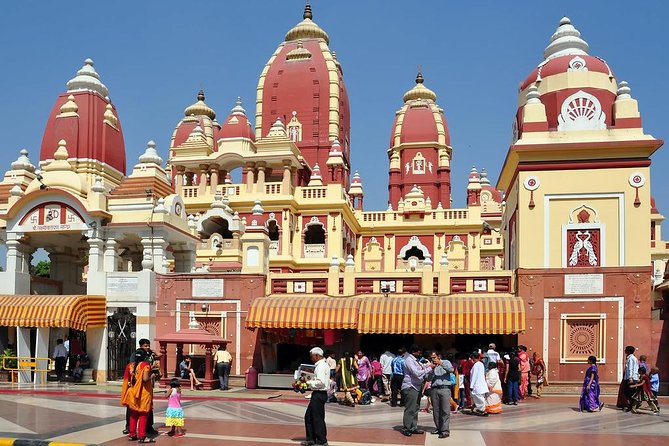Are you dreaming of embarking on a grand adventure, but your wallet just can’t quite keep up? Fear not, fellow wanderlusters! Budget travel is absolutely possible with some smart planning and savvy tips. In this article, we’ll explore the world of low-cost travel and provide you with plenty of money-saving ideas to help make your dream trip a reality.
We understand that sticking to a budget while traveling can often feel daunting. But trust us when we say that it’s worth putting in the effort. Not only will you be able to stretch your dollar further, but you’ll also gain a deeper appreciation for the local culture and way of life by taking advantage of affordable options. Let’s find out how to travel on a budget.
Why travel on a budget?
Traveling on a budget has become increasingly popular in recent years. With the rise of affordable lodging options like hostels and Airbnb, as well as budget airlines and public transportation, it’s easier than ever to see the world without breaking the bank. But why should you bother with traveling on a budget?
First and foremost, traveling on a budget allows you to stretch your money further and do more with less. By saving money on accommodations, food, and transportation, you’ll have more funds available for experiences like sightseeing tours or activities that may be out of reach if you were spending top dollar.
Additionally, traveling on a budget can give you a unique perspective on your destination. Instead of staying in luxury hotels or eating at expensive restaurants frequented by tourists, you may find yourself interacting with locals more often or discovering hidden gems off the beaten path. This can give you a deeper understanding of the local culture and help you create memories that will last a lifetime.
Overall, while it may require some extra planning and flexibility, traveling on a budget is well worth the effort for those who want to see the world without draining their bank accounts.
Planning Ahead:
When planning a trip on a budget, it is essential to plan ahead. Advance planning can help you save money and avoid rushed decisions. Start by researching your destination and looking for affordable accommodations, travel packages, and deals that fit your budget. Consider traveling during the off-season or shoulder season when prices are lower.
Another critical aspect of planning ahead is creating a realistic budget for your trip. Determine how much you can afford to spend on transportation, food, activities, and other expenses. Be sure to include unexpected costs such as travel insurance or emergency expenses.
Finally, make a list of free or low-cost activities in the area that you can enjoy during your stay. Many destinations offer free museums, parks, and festivals that are open to the public year-round. With careful planning ahead of time and some flexibility with your itinerary, you can have an enjoyable vacation without breaking the bank.
Book in advance, research costs.
One of the best ways to save money on travel is to book in advance. This applies not only to flights and accommodations but also to tours and activities. By booking early, you can take advantage of discounts and promotions that are often offered by travel companies. Moreover, you have more time to compare prices and find the best deals.
Another important aspect of budget travel is researching costs. Before embarking on your trip, it’s essential to know how much everything will cost, from transportation and accommodation to food and entertainment. You can use online tools such as budget calculators or travel apps that help you plan your expenses based on your destination, duration of stay, and preferred activities. Additionally, you should read reviews from other travelers who have been to the same place and learn about their experiences with pricing. This will give you a realistic idea of what to expect regarding costs so that you can adjust your budget accordingly.
Accommodation options:
Accommodation options are a crucial factor to consider when traveling on a budget. Hostels are a popular choice for budget travelers, as they offer affordable dormitory-style rooms and shared facilities such as kitchens and bathrooms. Some hostels even have private rooms available at a higher price point. Another option is camping, which can be an economical way to experience nature while saving money on accommodation costs.
For those who prefer more privacy or comfort, Airbnb offers accommodations ranging from private rooms in someone’s home to entire apartments or houses for rent. This option can often be cheaper than hotels and allows travelers to experience local neighborhoods and culture firsthand. However, it is important to research the host and read reviews before booking to ensure safety and reliability.
Ultimately, the best accommodation option will depend on individual preferences and travel style. It is important to do research beforehand and weigh the pros and cons of each option based on factors such as cost, location, amenities, and overall experience. With careful planning, it is possible to find affordable yet comfortable accommodations while traveling on a budget.
Hostels, Couchsurfing, house-sitting.
Hostels, Couchsurfing, and house-sitting are all great options for travelers on a budget. Hostels are the most common choice for backpackers as they offer cheap accommodation with basic amenities such as bunk beds and shared bathrooms. Many hostels also provide communal areas where travelers can socialize, cook their own meals, and participate in various activities.
Couchsurfing is another popular option that allows travelers to stay with locals for free. It is an online hospitality service that provides a platform for hosts and guests to connect and arrange stays at no cost. This option not only saves money but also allows travelers to experience local culture through the eyes of a resident.
House-sitting is another way to save money while traveling by providing free accommodation in exchange for taking care of someone’s home or pets while they are away. This option requires trust between both parties as it involves staying in someone’s home alone but can be a great way to explore different parts of the world without breaking the bank.
Transportation tips:
- Use public transportation: Public transportation is the most cost-effective way to travel on a budget. It can save you money, time, and energy, compared to renting a car or taking a taxi. Many cities have efficient public transport networks that are easy to use and offer affordable fares. In addition, some cities offer discounted passes for frequent travelers.
- Plan ahead: Planning ahead is essential when traveling on a budget. This includes researching your destination and finding out about local transportation options before you arrive. You should also look for deals and discounts online, such as early bird specials or group rates.
- Walk or bike: Walking or biking is another great way to save money on transportation costs while also getting some exercise. Many cities have dedicated bike lanes and walking paths that make it easy to get around without spending any money at all.
Overall, there are many ways to save money on transportation when traveling on a budget, ranging from using public transportation or walking/biking to planning ahead for discounts and deals. With these simple tips in mind, you can enjoy your travels without breaking the bank!
Use local transport, walk or bike.
One of the most effective ways to save money on travel is by using local transport, walking or biking. Local transport such as buses and trains are usually cheaper than taxis or private cars. In addition, they offer a more authentic experience of the destination. It’s a great way to interact with locals and observe their daily lives.
Walking is free and not only saves you money but also allows you to explore hidden gems that might be missed when taking public transport. Biking is another eco-friendly option that can also help you save money on transportation costs while getting some exercise at the same time. Many cities now offer bike-sharing programs which allow visitors to rent bikes for a small fee, making it an affordable option for all types of travelers.
Overall, using local transport, walking or biking can make your travels more cost-effective and enjoyable while minimizing your carbon footprint. So next time you’re planning a trip, consider ditching the car rental and exploring your destination on foot or by public transit instead!
Food and drink hacks:
One of the biggest expenses when traveling is food and drink. However, there are plenty of hacks to help you save money in this area. One great tip is to research local street food options instead of dining at expensive restaurants. Not only will you experience authentic cuisine, but it will also be much cheaper.
Another hack is to bring your own reusable water bottle and refill it throughout the day instead of constantly purchasing bottled water. This not only saves money but also helps reduce waste in the environment. Additionally, consider packing snacks such as granola bars or fruit for times when you need a quick bite on the go.
Finally, don’t be afraid to ask locals for recommendations on affordable places to eat and drink. They may have insider knowledge of hidden gems that won’t break the bank. By using these food and drink hacks while traveling, you can enjoy delicious meals without draining your wallet.
Cook your own meals, eat street food.
Cooking your own meals can be a great way to save money while traveling. It may not be as convenient as eating out, but it can definitely be more cost-effective. Buying groceries and cooking for yourself can save you a significant amount of money over the course of your trip. Plus, it gives you more control over what you eat and how healthy it is.
On the other hand, eating street food can also be a budget-friendly option while traveling. Street food vendors often offer delicious local cuisine at a fraction of the cost of a restaurant meal. However, it’s important to be cautious about where and what you eat from street vendors to avoid getting sick. Look for busy stalls with fresh ingredients and make sure they are cooked thoroughly before consuming.
In conclusion, both cooking your own meals and eating street food can help stretch your travel budget further. While cooking may take some extra effort, it can provide healthier meal options and significant cost savings in the long run. Eating street food requires caution but can offer delicious local flavors at affordable prices.
Sightseeing for free:
Sightseeing for free is an excellent way to experience a new destination without having to break the bank. Many destinations have free attractions that are worth visiting, such as museums, parks, and historical landmarks. In addition, walking tours are often available for free or at a low cost and can provide valuable insight into the local culture and history.
One of the best ways to sightsee for free is by taking advantage of public transportation systems. Many cities offer free public transportation in certain areas or during specific times of the day. This allows visitors to easily explore different parts of the city without having to pay for expensive taxis or tours.
Another option is to look for local events that are open to the public. Festivals, concerts, and cultural celebrations can be great opportunities to experience the local culture while also enjoying entertainment for free. By doing some research ahead of time and planning accordingly, travelers can make the most out of their trip without breaking their budget.
Check out free attractions, and city walking tours.
One of the best ways to save money while traveling is by checking out free attractions. Most cities have some sort of free museum, park, or attraction that you can visit without spending a dime. These attractions often offer a great way to learn about the local culture and history without breaking the bank.
In addition to free attractions, many cities also offer walking tours that are completely free. These tours are led by knowledgeable locals who will take you through different parts of the city and teach you about its history and culture. Not only are these tours informative, but they’re also a great way to get some exercise and explore the city on foot.
When planning your next budget-friendly trip, be sure to research any free attractions or walking tours in your destination city. By taking advantage of these offerings, you’ll be able to stretch your budget further while still experiencing all that your destination has to offer.
Conclusion:
In conclusion, traveling on a budget requires some planning and effort, but it is possible to have an amazing trip without breaking the bank. By following these tips and tricks for saving money, you can stretch your budget further and make your travel dreams a reality. Whether it’s choosing affordable destinations, finding inexpensive accommodations, or taking advantage of discounts and deals, there are many ways to cut costs without sacrificing quality.
However, it’s important to remember that traveling on a budget may not be for everyone. Some people prefer the comfort and convenience of luxury accommodations and expensive activities, while others may not have the time or resources to plan extensively in advance. It’s up to each individual traveler to decide what works best for them. Regardless of your preferences or circumstances, though, there are always ways to make travel more affordable if you’re willing to put in the effort. With careful planning and smart choices, you can create unforgettable experiences while staying within your means.
Travel doesn’t have to be expensive.
1. Save on accommodations: Instead of staying in expensive hotels, consider alternative options like Airbnb or hostels. These options are often more affordable and can offer a unique experience.
2. Plan ahead: Booking flights and accommodations in advance can often lead to significant savings. Additionally, researching free or low-cost activities and attractions at your destination can help keep costs down.
3. Use public transportation: Opting for public transportation instead of taxis or rental cars can save a significant amount of money while also allowing you to experience the local culture more intimately.
4. Eat like a local: Instead of dining at touristy restaurants, seek out local eateries where prices are typically lower and the food is often more authentic.
5. Travel off-season: Visiting popular destinations during their off-season can mean significantly lower prices for flights, accommodations, and activities.
6. Take advantage of loyalty programs and travel rewards credit cards: Many airlines and hotel chains offer rewards programs that allow you to earn points towards future travel expenses.
7. Be flexible with your itinerary: Being open to changing your plans if an opportunity for savings arises (such as finding a cheaper flight) can result in big savings overall.
By implementing these tips and tricks, traveling on a budget doesn’t have to be stressful or limiting – it’s possible to enjoy new experiences without breaking the bank.



